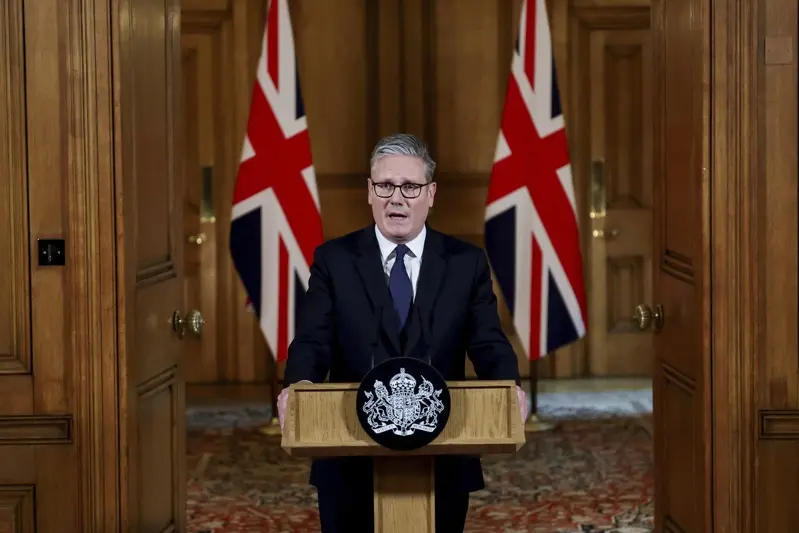
British Prime Minister Keir Starmer announced in a televised statement on the 29th that Britain would recognize Palestine before the UN General Assembly in September unless Israel agreed to a ceasefire in Gaza, allowed UN aid, halted annexation of the West Bank, and took other steps toward long-term peace.
After French President Emmanuel Macron announced on the 24th that France would become the first Western power to recognize Palestine in September, international pressure has mounted for formal recognition of a Palestinian state. French Foreign Minister Jean-Noel Barrot went further at a UN conference co-chaired with Saudi Arabia on the 28th, stating that there is no alternative to a two-state solution to the Israeli-Palestinian conflict. However, the conference was boycotted by Israel and dismissed by the United States as a stunt.
Currently, at least 142 of the 193 UN member states recognize Palestine. The UK has long supported the establishment of an independent Palestinian state alongside Israel, but emphasizes that recognizing Palestine through a negotiated two-state solution should be part of resolving the conflict. With the famine in Gaza shocking many Britons, Skerrit is facing increasing domestic pressure.
Skerrit met with US President Trump in Scotland on the 28th; Trump told the media that day he wouldn’t mind Skerrit taking a “position” on Palestinian statehood. Skerrit issued the aforementioned statement after a rare summer cabinet meeting on the 29th.
On his return flight to the US on the 29th, Trump stated that he and Skerrit had never discussed the possibility of British recognition of Palestine. The Israeli Foreign Ministry, in a social media post, rejected the British statement, stating, “The British government’s shift in position, driven by French action and domestic political pressure, rewards Hamas.”
Israeli Prime Minister Netanyahu has rejected the “two-state solution,” and his government seems unlikely to meet the British conditions in the statement, as they touch upon the core of the most intractable issues in the Israeli-Palestinian conflict.
However, the British ultimatum has indeed increased international pressure on Israel. Compared to France’s outright announcement that it would recognize Palestine in September, Scheiner’s statement is more targeted and leaves room for the UK to support Palestinian statehood in September.
In a televised statement, Scheiner stated that the British government will assess progress in September before making a final decision on recognizing Palestine. The Wall Street Journal reported that the UK’s move is highly symbolic; the shift in stance by the UK and France poses a challenge to Germany. Germany, with its deep historical ties to Israel, has consistently resisted calls for rapid recognition of a Palestinian state. Germany’s hesitation is the biggest obstacle to EU pressure on Israel.







